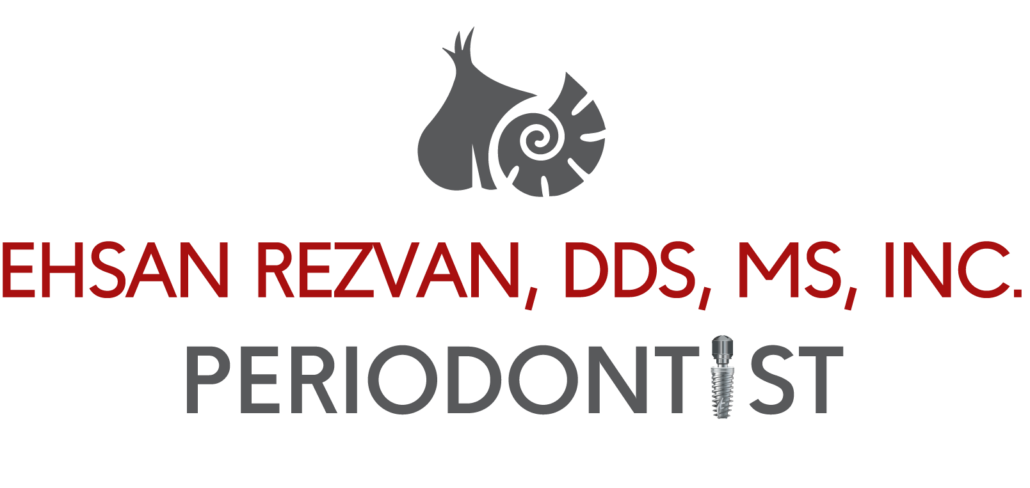Not only does maintaining excellent oral hygiene reducing the risk of periodontal disease, it’ll also protect you from developing other serious conditions. When bacteria in the mouth spreads throughout the body, it can cause chronic conditions including diabetes, heart disease, and osteoporosis.
Periodontal Disease and Diabetes
Diabetes is an incurable disease caused by too much glucose in the blood, affecting 12-14 million Americans and can lead to conditions including heart disease and stroke. Type 2 diabetes occurs when the body is unable to regulate the blood’s insulin levels, and type I diabetes is the inability to produce insulin at all.
Research has shown that diabetics with insufficient blood sugar control are prone to developing periodontal disease more frequently and severely than those who do not. There are multiple factors that cause people with diabetes to be prone to infection: Diabetes caueses blood vessel thickening, slows circulation, and reduces the body’s resistance to infection, all of which allow bacteria to colonize in parts of the body—including the gums.
Diabetics with periodontitis have even more trouble maintaining their glucose levels because of the increased blood sugar associated with the disease. This also means that their saliva contains high levels of glucose, which fosters the growth of gum disease-causing bacteria.
While detrimental to anyone’s health, smoking and tobacco use is especially harmful to diabetics. Diabetic smokers over the age of 45 are 20 times more likely to develop periodontal disease than non-smokers.
If teeth aren’t properly cared for, harmful bacteria in the mouth can absorb excess sugar and colonize beneath the gum line, making it particularly essential that diabetics maintain proper oral hygiene and visit the dentist regularly.
Periodontal Disease, Heart Disease and Stroke
When fatty proteins and plaque build up along the walls of your arteries, blood flow and oxygen are constricted, causing shortness of breath, risk of stroke, and even coronary heart disease. Oral conditions are proven to intensity existing heart conditions, making patients with periodontitis nearly twice as likely to suffer from coronary artery disease. If strands of periodontal bacteria enter the bloodstream and attach to the fatty plaques in the coronary arteries, clot formation may occur and increase the possibility of a variety of issues including heart attack and stoke.
Periodontal disease creates an increase in white blood cells and C-reactive proteins (CRP) in the body, which boosts the body’s natural inflammatory response and may cause the liver to produce extra CRP. This extra CRP could lead to inflamed arteries, blood clots, and blockage, which can cause heart attacks or strokes.
For these reasons, practicing oral hygiene and seeking proper treatment for periodontitis can help prevent coronary heart disease, which is the leading cause of death of both men and women in the United States.
Periodontal Disease and Pregnancy
Hormonal changes that women experience during pregnancy increase their chances of contracting periodontal disease.On the other hand, if a woman already has periodontal disease, it will cause an increase in prostaglandin, which is a labor-inducing compound found in the oral bacteria. This increase may cause a mother to go into labor prematurely and deliver a baby with a low birth weight. If bacteria from a diseased mouth travels through the bloodstream, it could colonize in a pregnant woman’s internal mammary glands and coronary arteries.
C-reactive protein (CRP), historically associated with heart disease, has also been linked to premature birth and low birth weights. Periodontal disease increases CRP levels in the body, which in turn increases the body’s natural inflammatory response. If oral bacteria enters the bloodstream and causes the liver to produce extra CRP, arteries become inflamed and the possibility blood clots grows.
There are a number of possible complications that can stem from exposing an unborn child to periodontal disease, including preeclampsia and premature birth. Responding to and treating periodontal disease early can reduce the risk of these complications by up to 50%, so it’s especially important for women to practice careful oral hygiene when pregnant for the safety of themselves and their babies.
Periodontal Disease and Respiratory Disease
Respiratory disease occurs when droplets containing germs are inhaled from the mouth and throat into the lungs, causing impaired breathing and infection. In patients with periodontal disease, bacteria infecting the oral cavity can make its way into the lungs, contributing to the possibility of contracting pneumonia, bronchitis, and emphysema. Chronic obstructive pulmonary disease (COPD), typically caused by blockage of the airways due to smoking, can also worsen if the patient has periodontal disease.
Low immunity is often a factor in the connection between periodontal disease and respiratory problems. Patients with respiratory problems often have low immunity, leaving them at risk for infection due to oral bacteria that will worsen existing conditions. Oral bacteria also causes inflammation of oral tissue, which can travel to the lungs and cause inflammation of lung lining, restricting the amount of air that can pass through the lungs.
For the above reasons, it’s important to work with your doctor to treat both respiratory disease and periodontal disease diligently so one doesn’t aggravate the other.
Periodontal Disease and Osteoporosis
Osteoporosis is caused by a drop in estrogen in menopausal women, or a drop in testosterone among men, and is characterized by gradual loss of bone density and thinning of bone tissue. Research has shown that osteoporosis patients could significantly reduce tooth loss by controlling periodontal disease, so it is incredibly important that osteoporosis patients take preventative measures against periodontal disease.
One factor that connects osteoporosis and periodontal disease is an estrogen deficiency, which speeds up the progression of both oral bone loss and other bone loss. It also accelerates the destruction of fibers and tissues vital in keeping teeth stable and in place.
Periodontal disease causes inflammation that weakens bones more prone to break down, which is why periodontitis can be particularly detrimental and progressive to patients with osteoporosis.

